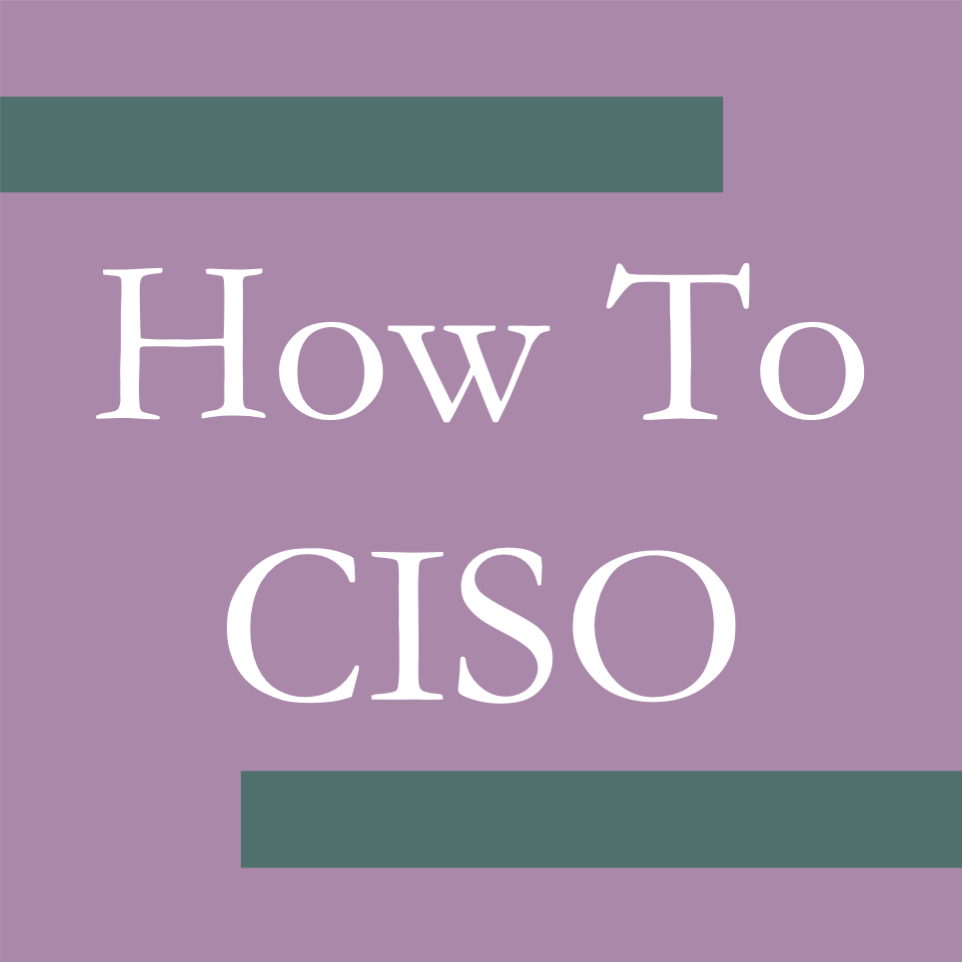Being a CISO isn’t easy.
Stand on the shoulders of giants.
Whether you’re a long-time CISO, a first-time CISO, you aspire to be a CISO someday, or you work with or hire a CISO, How to CISO is your canonical reference library. Collecting and synthesizing wisdom across the CISO community, we aim to provide clear, actionable guides for CISOs as all levels. From strategic topics like structuring your organization, implementing security, and reporting to the board to tactical topics like zero trust, AI, and identity, you can make How to CISO your quick reference.
The Library collects the major works (long-form Volumes, short-form Handbooks, and Talks) of How to CISO; Concepts lets you look at content based on topic. Opinions are the interesting opeds written by the How To CISO crew, and Podcast? Well, find interesting podcasts there until the How To CISO podcast launches!
Recent content
-
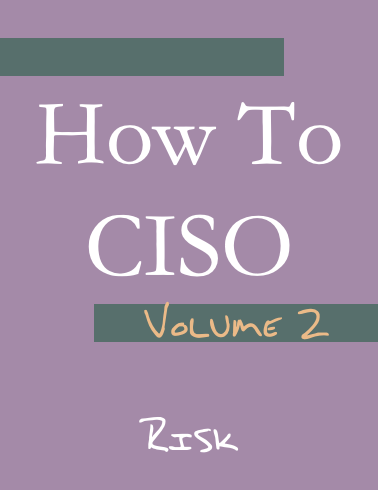
How to CISO Volume 2: Risk
As a CISO, you’re often going to be asked to measure risk. You might think you’re in the job of mitigating risk. You might think of it as managing risk. These phrases have a lot of different meanings, depending on who is speaking, so you’re going to have to listen carefully to the speaker to…
-

RSAC 2025: The CISO to VC Transition
Welcome to the talk page for My Journey – CISO to Partner at a VC Firm, as given at the Tejas Cyber Entrepreneurship Summit. There isn’t a particular abstract, other than “How did you make the transition from CISO to Partner?”, and this talk aims to genericize the conversation. How to CISO relevant resources Talk…
-

RSAC 2025: Zero Trust To Give
Welcome to the Talk Page for Having Zero Trust to Give: What should have been next? You can find additional resources here! Abstract Zero Trust generally means either “Zero Trust Network Access,” now a decade old, or it’s a sign that a vendor’s marketing team is behind on the buzzword-washing their content. What should Zero Trust…
-

Handbook: Applying Zero Trust Principles in a Cloud-Centric World
Zero Trust … but to Which Cloud? In the cloud-centric world enterprises increasingly operate in, there are different interesting environments that zero trust principles should be applied to. One of them we’ve somewhat talked about the evolution of the enterprise IT network. That network is becoming more and more obsolete, slowly being replaced with different…
-

Handbook: Environments
One challenge of being a CISO is understanding scope: when a colleague tells you a truth (hypothetically “We patch our systems regularly”), in what environment is that true? Maybe they’re just referring to the core Windows Domain servers, or possibly to desktops, but it’s easy for executives, including CISOs, to hear that as “we do…
-

RSAC 2025 CISO BootCamp: The Idealized CISO
Welcome to the talk page for A Unicorn Designed by a Committee: The Idealized CISO. You can find additional resources here! Abstract Every CISO arrives by a different path, and every executive has a different expectation of what a CISO actually does (besides “everything”). Where do these expectations come from, and how can you prepare…
-
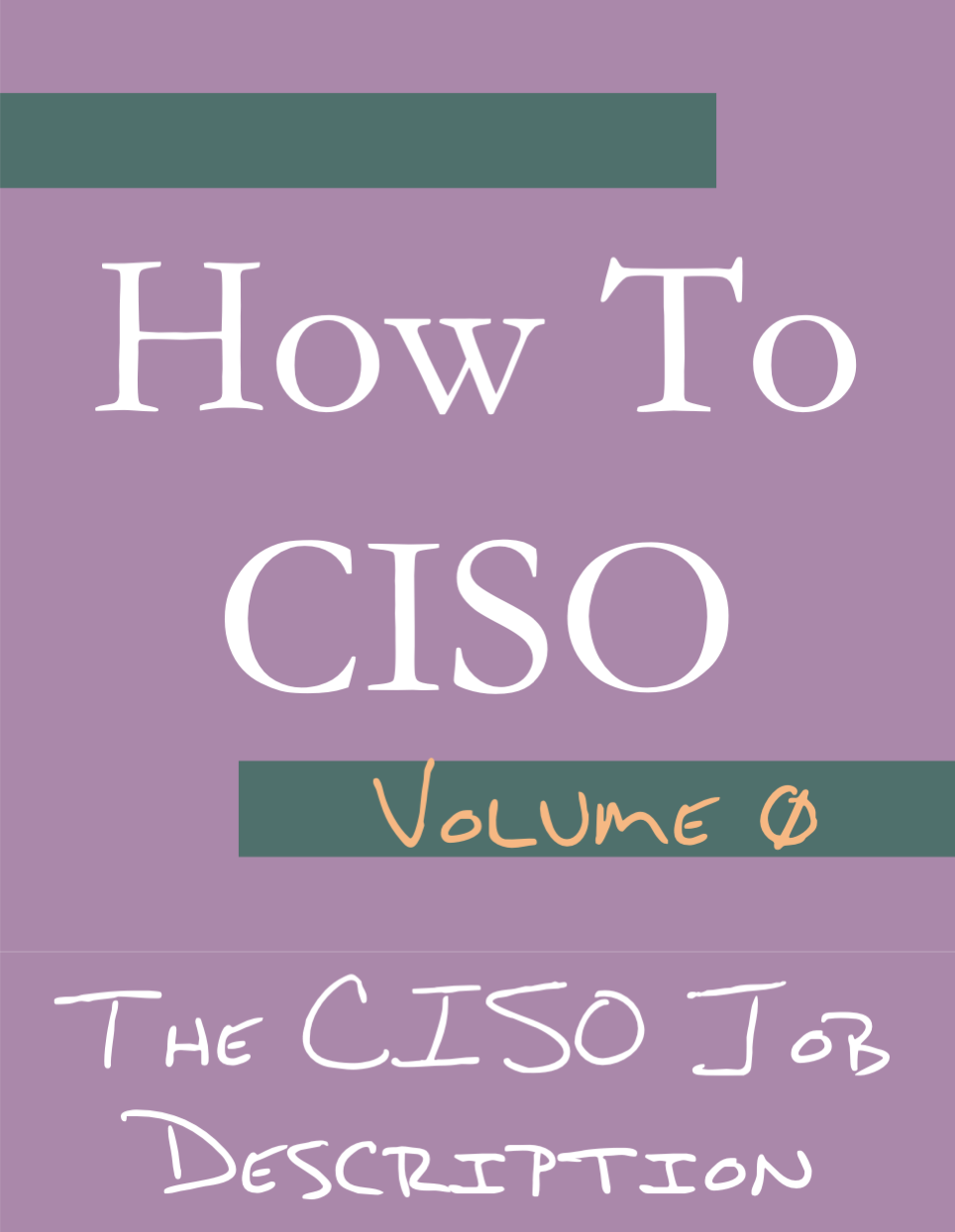
How to CISO Volume 0: The Idealized CISO Job Description
Many companies are not in dire need of a CISO right now, but need to define a role for their future CISO, often including a plan to develop the incumbent security executive into a credible CISO. This guide provides a profile of the idealized CISO. Why idealized, and not ideal? Because a CISO is often…
-

Handbook: Zero Trust Principles
In the 2010s, the cybersecurity community was introduced to the concept of zero trust, the idea that implicitly trusting remote systems might be a … bad idea. John Kindervagt coined the term while at Forrester Research, although practical applications were developed in parallel elsewhere. In response to the breaches from Operation Aurora, Google implemented its…
-
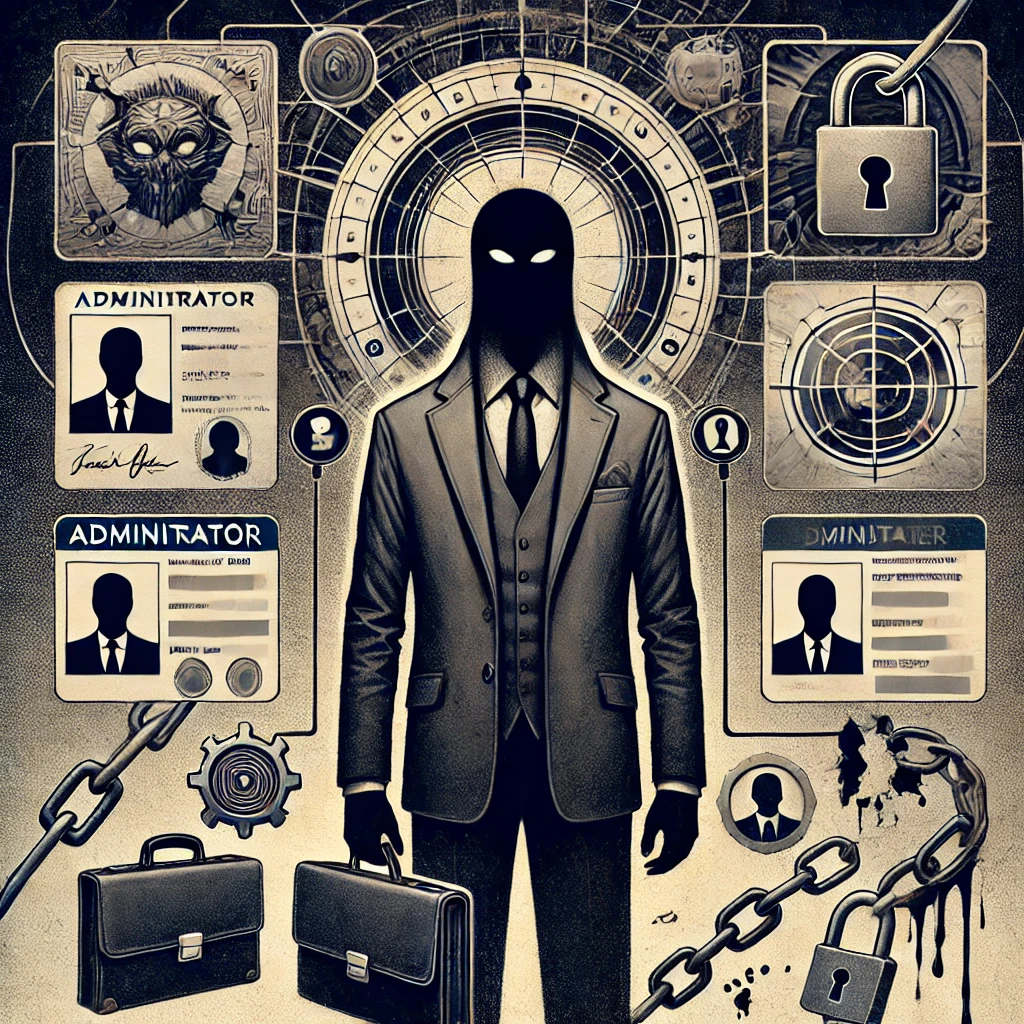
Zero Trust in Administration
CrowdStrike, Windows domain administration, SolarWinds — our implicit trust in admin software is a recipe for repeated disasters. The most unsafe part of our technology ecosystem isn’t the number of unpatched systems we have. Nor is it shadow IT, whether it’s homegrown software or the burgeoning bring-your-own-SaaS ecosystem. The shared responsibility model, and the impossible complexity of safely configuring systems…
-

The Death of the CIO
CISOs grew up in the CIO’s blindspot. As cloud and SaaS bring IT and security back together, which will survive their impending deathmatch? A half-century ago, most corporations were paper-native: Their business processes all executed on paper from both back office (accounting) to go-to-market functions (sales and marketing). Their businesses were location-native: Revenue was often…
-

Why assessing third parties for security risk is still an unsolved problem
A recent ranking of the most cyber-secure companies reveals weaknesses in current third-party risk management practices. A Forbes article is making the rounds right now about America’s most cyber-secure companies, and I can already see the cybersecurity outrage machine up in arms. Full confession: I haven’t yet read the article, but I’m about to. I’m writing this…
-
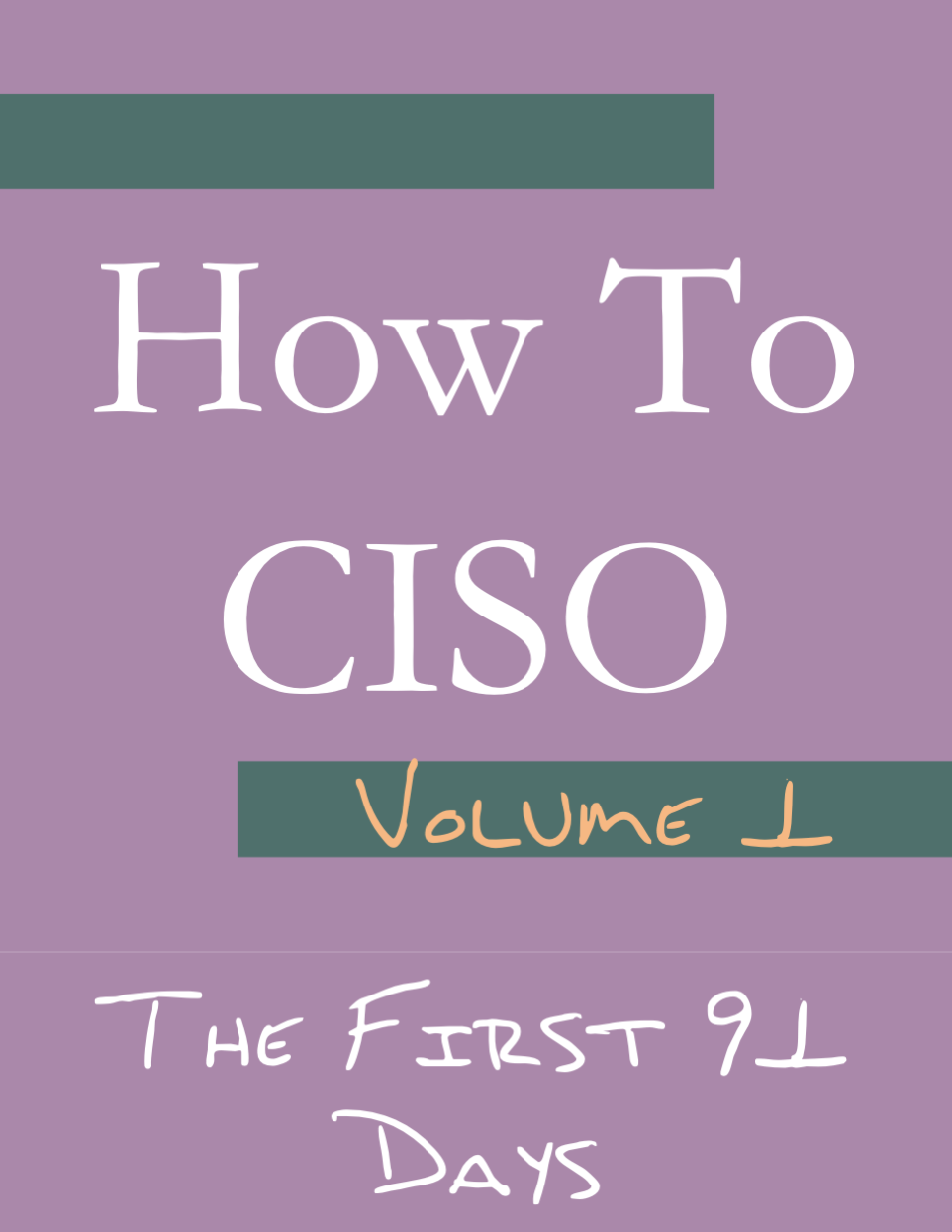
How to CISO Volume 1: The First 91 Days
Ninety days is generally the grace period (or “honeymoon,” if you’d like) that a new executive has to get acclimated to a new environment. At the end of this time window, your employer is going to expect you to be executing on a plan, anyone you need to meet will expect you to have already…
-
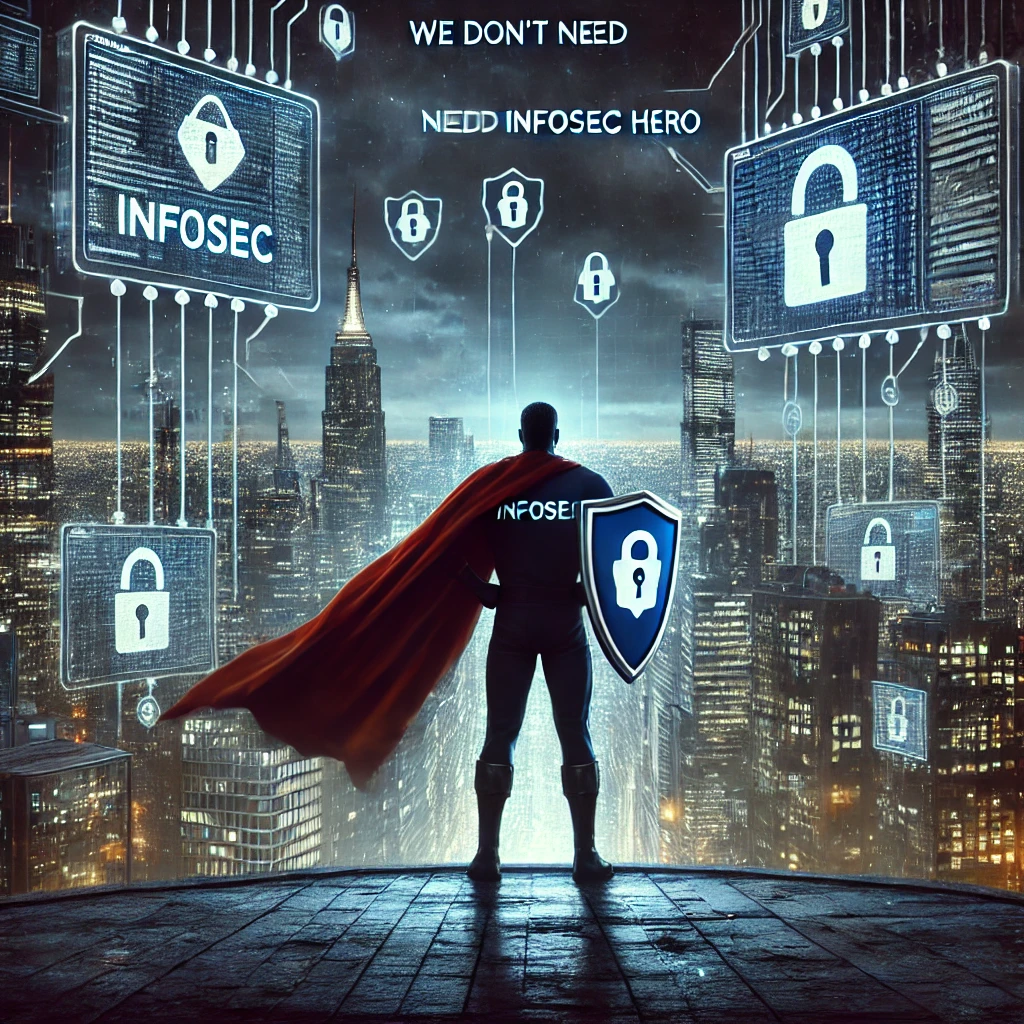
We don’t need another infosec hero
By setting yourself up as the defender, the solver of problems, you cast your business colleagues as hapless victims or, worse, threats. This is not a useful construct for engagement. There’s this belief among a lot of security professionals that we are special, in that we are the defenders of our companies. We like to…
-
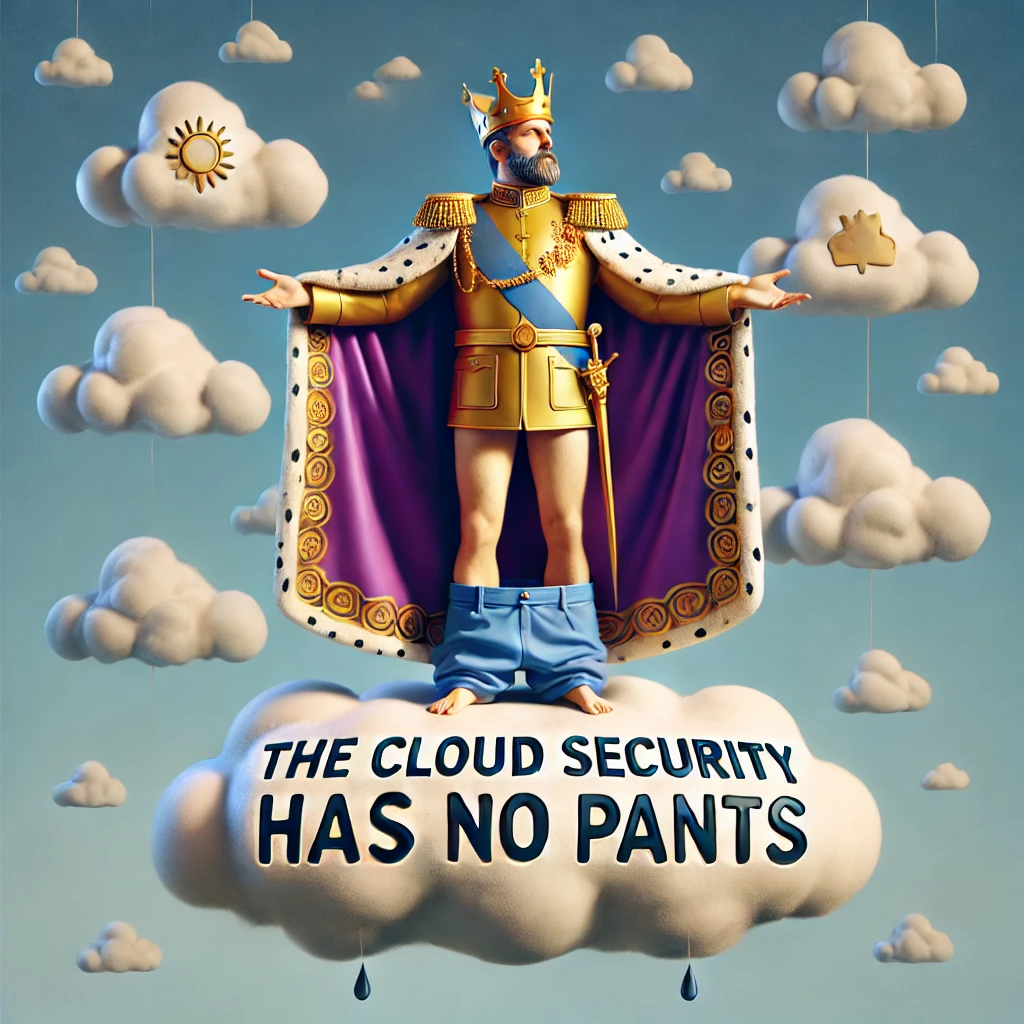
The cloud security emperor has no pants
“Shared responsibility” usually means that no one is responsible for minding the gap. Don’t fall in. As anyone who has worked on a cross-functional team with no clear owner knows, “shared” or “joint” responsibility often means that everyone assumes that someone else is taking care of the problem. Without clear effort to make sure that…
-

CISOs are still chiefs in name only
If you’re not in the meeting where decisions are made, then you’re not part of the C-Suite—whatever your title may be. Look around the CISO community, and you’ll find signs of burnout everywhere. Where CISOs aren’t just quitting, you’ll find increasing tension between them and their executives, sometimes resulting in surprising departures. Ply a friendly CISO with…
-

Vulnerabilities don’t count
No one outside the IT department cares about your vulnerability metrics (or they shouldn’t, anyway). They care about efficacy. And traditional stats don’t show that. I had a lovely chat with one of my favorite CISOs the other day, helping them think through the security metrics that they report upwards. Front and center, as I…
-
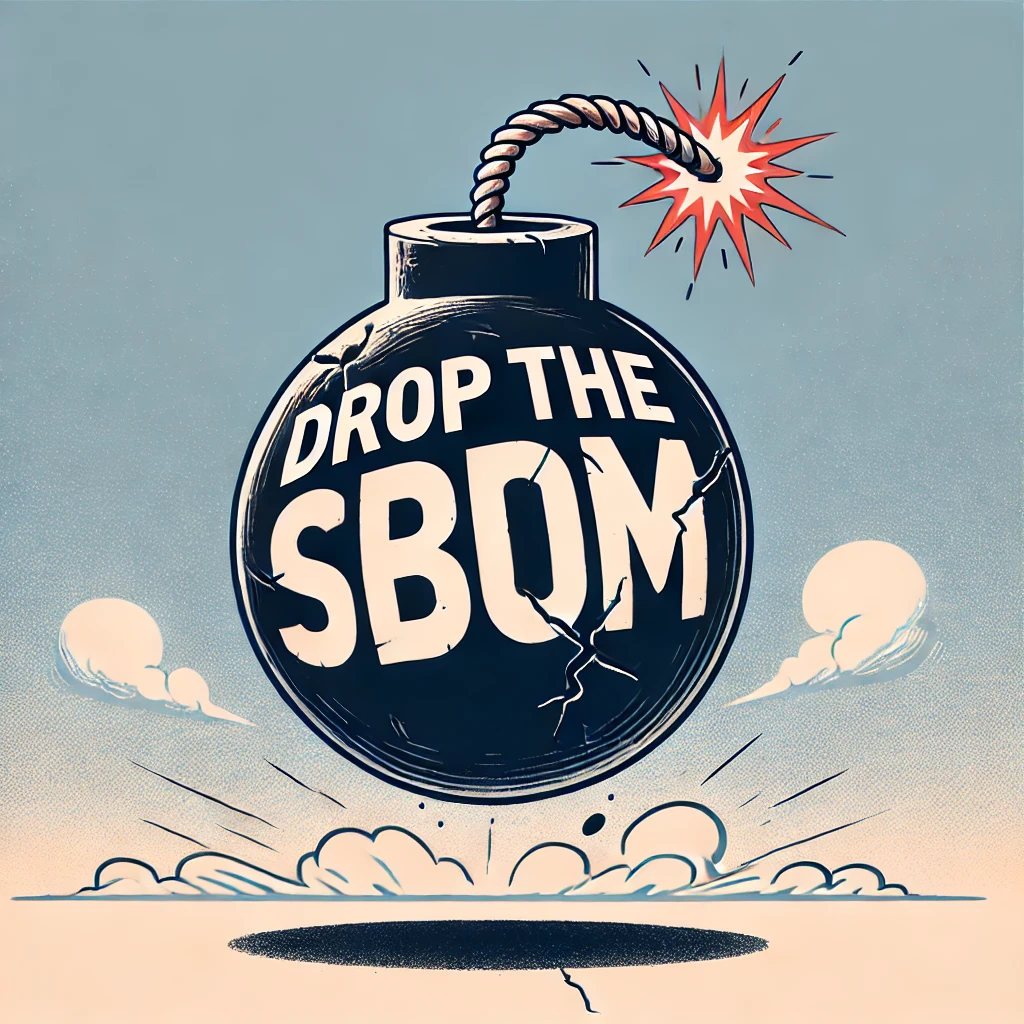
Drop the SBOM
Software bills of material are having a moment, but the costs of an externally visible SBOM are likely to outweigh the benefits, says Andy Ellis. There’s a big movement afoot to move to an SBOM-oriented world. If you’re new to this acronym, an SBOM is a “Software Bill of Materials.” The idea is that any…
